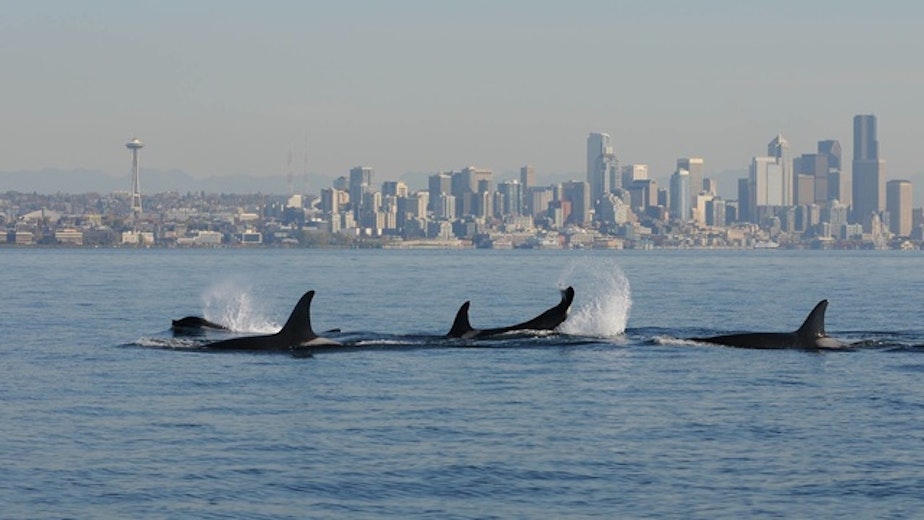Killer Grandmas: Orca Whales Survive On Older Females' Wisdom

Nearly every mammal on earth reproduces until they die – except for humans, and two species of whales.
A new study shows that older, female killer whales are most likely to lead their pods as they travel through the salmon foraging grounds of the Pacific Northwest.
When salmon are sparse, those grandma orcas are even more likely than males and younger adult females to lead the group.
Lauren Brent, who is exploring the evolution of menopause in killer whales at the University of Exeter in the U.K., said that’s because the older female whales are keepers of wisdom about surviving during lean times.
“You wouldn't be too far off if you were to say that they have greater experience simply due to their age and therefore have information that other whales don't have access to,” Brent said.
Sponsored
Previous research has shown that when little salmon is available, orcas are more likely to die.
“That suggests being able to find salmon if you’re on such a knife edge of survival is really important,” Brent said.
She said that long life and menopause benefit an orca pod on the whole, because those older females can focus on steering the family rather than making babies.
That has huge implications for understanding menopause in humans, she said.
“For the majority of human evolution, we didn’t have very complicated means of having information,” Brent said. “We didn’t have books or the Internet where you could look things up if you wanted to know something.”
Sponsored
And like killer whales, humans live in family-structured groups, she said. “Older females have the potential to also pass information to their close relatives and therefore help them survive and reproduce.”
But what about the older males? Why aren’t they leading the pods?
“The funny thing is that there aren’t really any old whale men,” Brent said. Scientists have researched orcas since the 1970s but “only documented one male to live past the age of 50. So the men aren’t living as well.”
Produced for the Web by Isolde Raftery.


